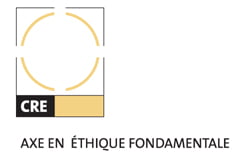
A pragmatist outlook on the tension between ‘know how’ and ‘know that’ in ethics
2910 Boulevard Edouard-Montpetit
Montréal, QC H3T 1J7
Canada
Le CRÉ est heureux d’accueillir Veljko Dubljevic, chercheur posdoctoral Banting (IRCM, McGill), qui donnera une présentation intitulée « A pragmatist outlook on the tension between ‘know how’ and ‘know that’ in ethics.
Abstract:
A pragmatist outlook on the moral domain places morality within the natural world, as studied by natural and social sciences. The recent paradigm shift in moral psychology toward the view that moral judgment is tacit and intuitive (know how), and not explicit (know that) could be seen as posing several distinct problems for moral epistemology: “moral dumbfounding”, relativism, parochialism and the is-ought tension. Drawing on Dewey, this paper describes the pragmatic and dynamic understanding of the epistemology of moral intuitions and habits, and offers solutions to the problems that affect strong forms of essentialist naturalistic ethics. The authors argue that a progressive model of ethics which is open-ended but not relativistic has to rely on the best considered judgments which are revisable based on available evidence and the evolution of social life. Furthermore, the three different meanings of “is” (natural fact, social fact, and social practice) are thoroughly analyzed in order to refute the anti-naturalistic challenge. Finally, some important implications for ethics are considered. Tacit (vs. explicit) knowledge seems to be at odds with the traditional view of the role of ethics, while the pragmatic account of ethics escapes these problems. Additionally, the nature of moral competence, which is attributable to all normally functioning adult human beings and moral expertise, which is traditionally attributed to ethicists, are impacted by this new and emerging view of morality.



